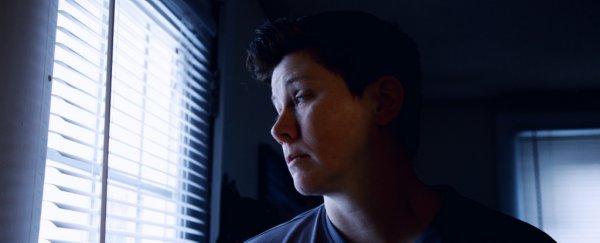The shock of the current pandemic is rippling out across the United States, and the tragic loss of life is causing a 'tidal wave of grief', research has found.
Behind every COVID-19 death is an irreplaceable human and a family of loved ones. On average, experts have calculated one loss of life leaves nine surviving relatives behind, whether that be a grandparent, parent, sibling, spouse, or child.
They've coined this number the 'bereavement multiplier', and if you apply it to the nearly 138,000 lives already lost in the US, the widespread grief is stunning.
There's no doubt many people have lost more than one family member. Tragically, some deaths leave nobody to mourn. But at the extreme end, up to 1.22 million people in the US are estimated to have lost a close relative to the pandemic in recent months.
If a million people in the US end up dying from COVID-19, then that means 8.9 million would be bereaved, roughly three of every 100 Americans.
These numbers make it clearer than ever that COVID-19 isn't just affecting those who contract it. Even once this pandemic is over, its collective toll on our lives will no doubt persist.
"Already, more than a million Americans will forever have a hole in their family," says sociologist Emily Smith-Greenaway from the University of Southern California.
"In just a few short months, over 1 million Americans have experienced an irreplaceable loss that not only leaves them grieving and possibly traumatised, but may come with long-lasting health and economic consequences for themselves and others in their family."
Obviously, the bereavement multiplier is not a perfect predictor. Instead, it's a simple, conservative ratio for the number of close relatives beset by grief from each COVID-19 death. And this factor remains relatively constant under various future trajectories.
This flexible multiplier approach allows scientists to help clarify what could be a future wave of health issues tied to widespread bereavement.
For instance, studies have shown the unexpected death of a loved one can raise the risk of major depression, excessive use of alcohol, and anxiety disorders, like phobias and post-traumatic stress disorder. Bereavement has also been tied to physical health problems, such as cardiovascular issues.
As usual, some groups of people will likely cop the brunt of this enduring pain, and this simple multiplier approach allows us to demonstrate that quite clearly.
Systemic injustices in both the health care system and social welfare have left some racial and ethnic groups facing much greater threats from COVID-19.
Black people, Hispanics and Latinos, and American Indians/Alaska Natives all have higher rates of hospitalisation and fatality from COVID-19 compared to White people. And this new research implies these groups will also suffer more in a potential second wave of grief.
"There are substantial concerns about the health impacts of COVID-19 for individuals, but one area that has received less attention is how the deaths caused by this disease will reverberate through families," says sociologist Ashton Verdery, who studies demography and social data analytics at Penn State University.
"Our results show that these impacts will be substantial, they'll affect people at all ages, and they may exacerbate existing inequalities in bereavement and social support."
While young people are not as threatened by COVID-19, that does not mean they will get through this pandemic without suffering.
COVID-19 is unlike anything anyone alive has experienced. The deaths are sudden and unanticipated, they can impact several members of a family, there's little room for closure without traditional postmortem rituals, and the contagiousness of the disease precludes many from being at the bedside of those who are sick.
No matter what your age, these events can have real and lasting consequences.
"Together, these distinct facets of COVID-19 may mean that kin loss during this pandemic may be uniquely traumatising and bear more severe and numerous consequences for the bereaved than is the case in the recent mortality landscape," the authors write, adding that the overall burden of bereavement will no doubt be higher than their estimates.
After all, close family members aren't the only ones who are grieving. Extended family, close friends, and even healthcare workers and social workers, who have come to care deeply for their patients, are in that category, too.
None of us will be the same after this is over.
The study was published in PNAS.
